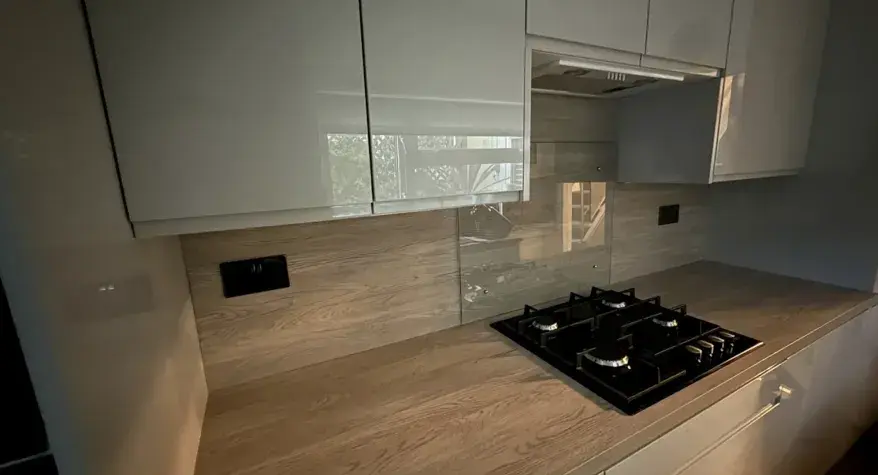A practical guide for homeowners in Norwich and Norfolk.
If you live in Norwich or the surrounding areas and you’re wondering about the condition of your home’s electrics, you’re not alone. Many homes—especially those built before the 1980s—still rely on wiring and fuse boards that no longer meet modern safety standards. This blog answers a common local question: “Do I need my house rewired?” We’ll cover the warning signs, how rewiring works, and when a simple consumer unit replacement might be enough.
What Is House Rewiring?
House rewiring involves replacing some or all of your property’s electrical cabling, sockets, switches, and fuse board to bring everything up to current UK safety standards (BS 7671). It’s not just about adding new sockets or tidying up old ones—rewiring is about safety, reliability, and future-proofing your home.
Signs a House Needs Rewiring
If you’re unsure whether you need a rewire, here are the most common signs house needs rewiring:
- Lights flickering or dimming
- Circuit breakers tripping regularly
- Warm or buzzing sockets and switches
- No RCD protection in the fuse board
- Sockets without earth cables
- Cables with rubber, cloth, or lead insulation
- A very old or damaged consumer unit
If you notice any of the above, it’s time to consider an electrical safety check in Norwich to assess the condition of your installation.
Full vs Partial Rewire – What’s the Difference?
Not all homes need a full rewire in Norwich. Sometimes, a partial rewire is enough—this might include upgrading wiring in high-use rooms like kitchens or bathrooms, or replacing a few ageing circuits.
In some cases, you may only need a consumer unit replacement to bring your home up to date, especially if the wiring itself is still in good condition.
What’s Involved in Rewiring a House?
A typical house rewire in Norwich includes:
- Removal of outdated cabling
- Installation of new wiring to current standards
- Replacing sockets, switches, and light fittings
- Installing a new FuseBox consumer unit with RCBOs and surge protection
- Earthing upgrades and smoke alarms if needed
Rewires are usually done in two stages: the first fix (wiring) and the second fix (fittings and testing). Depending on the size of your home, it can take from 5 days to 2 weeks.
What Does a House Rewire Cost in Norwich?
If you’ve searched for rewire cost Norwich, you’ll know prices vary. Here’s a rough guide:
- 1-bed flat: from £3,000
- 2-bed house: from £3,500
- 3-bed house: from £6,000
- Large or extended properties: quoted after inspection
These prices depend on your layout, number of circuits, and any extras (like outside lighting or USB sockets).
Why Use a Certified Electrician in Norwich?
Hiring a certified electrician for house rewire in Norwich ensures your home is rewired to the correct standard. At Norfolk Current, we follow the latest wiring regulations and issue all necessary certificates for your records, insurers, or future buyers. We’re also proud to be tidy, polite, and clear with pricing—something our customers value as much as our electrical skills.
Visual Electrical Inspection – Know Where You Stand
If you’re unsure whether you need a rewire or not, we recommend starting with a visual electrical inspection. This involves:
- Checking your fuse board and protective devices
- Looking at wiring condition where accessible
- Spotting unsafe or outdated components
- Offering honest, no-pressure advice on what’s next
This is a local service we offer in Norwich for £45, and if you go ahead with any major work, we refund the cost of the inspection.
Local, Friendly, Professional
We’re based in Norwich and work throughout the area including:
- Costessey, Hellesdon, Taverham
- Wymondham, Attleborough
- Thorpe, Cringleford, and other surrounding villages
Being local means we’re never far away—and we understand the property types, regulations, and wiring quirks that come with Norfolk homes.
Summary – Do You Need a Rewire?
Here’s a quick checklist:
Is your fuse board older than 25 years? You may need a consumer unit replacement
Do your lights flicker or breakers trip often? Time to book a visual electrical inspection
Do you have old-style round pin sockets, or rubber cables? A full or partial rewire may be needed
Planning a renovation or new kitchen? It’s worth upgrading wiring now





